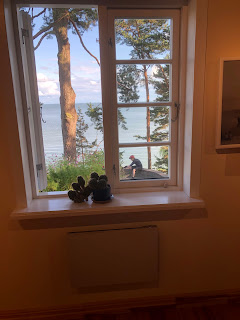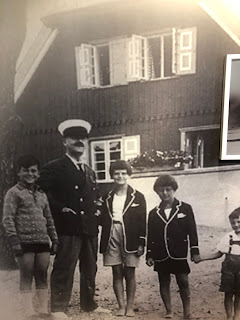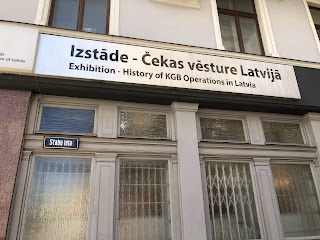I didn't expect to find any references to Siberia during my fall hike yesterday past historical points of interest. After all, the Manitoba landscape ... in the middle of Canada, is … is what?
Manitoba’s landscape is mostly flat steppe. (Technically, the difference between a steppe and a prairie is that prairie grasses are taller.) In the fall, the golden aspen become a centre point (Siberia has its birch trees).
In the winter, Manitoba’s prairie promises wind, snow, and cold. Hmm. Like my mother, a Siberian exile survivor, always said, “just like Siberia.” It’s a wonder she stayed in this brutal climate after her first winter back in 1954. But then, in those days, she had few options and surviving a cold Winnipeg winter was nothing like starving during a cold Siberian one.Anyway, imagine my surprise when I visited an old homestead (built by East European immigrants, Frank and Rose Kudlowich, in 1936), outside of Winnipeg yesterday. The place had been part of the movie set for a 2013 Keenu Reeves movie called Siberia (terrible reviews, but in this trailer you see a glimpse of the cabin at about 1:23). Perhaps my mom was right to compare Siberia with Manitoba. Here's a link to a Free Press article.
Winter weather, Siberian or Manitoban, was a strong point of contention for my mom and me. After years of quickly hiding my snow boots and other outdoor gear before she visited, the secret of my day-job finally emerged. She cried with disappointment. (Yes, I was a disappointing daughter in many ways.) After that, I had to constantly defend my decision to work in the Siberian/Winnipeg winters as a letter carrier. I thought it was a great job for a struggling writer raising three kids. I had solid income, regular hours, great benefits (including a pension and the health to enjoy it) and most importantly, head space to think my own thoughts. Another perk was the sunshine all year long and an appreciation of what a cold Siberian winter might have been like. Call it research.
I hope to revisit this 1936 built cabin later in the winter when the wind blows and the snow is deep. Sounds rather inviting. But for the millions of exiles back in Stalin’s world, the transition camps, special settlements, and gulags were anything but inviting. Winters can be harsh in this world and with the global energy supply threatened by Putin’s war, it’s a serious matter. We’re all vulnerable to extreme weather, especially when politics manipulates our experiences of it.














